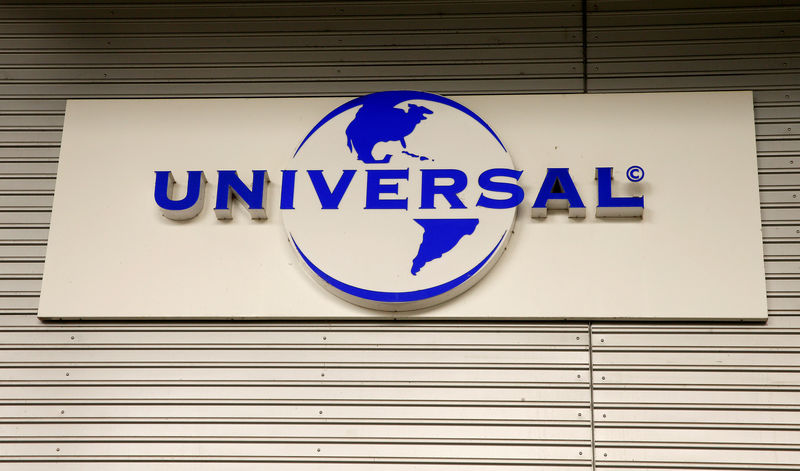By Mathieu Rosemain and Gwénaëlle Barzic
PARIS (Reuters) - Vivendi (PA:VIV) investors are eager for an update on plans for a possible listing of its music business on Thursday, hoping that could bolster the French media group's value after several setbacks in Italy.
Top shareholder Vincent Bollore, who calls Universal Music Group (UMG) the company's "jewel", has been floating the idea of an initial public offering (IPO) for two years, through hints and statements that have supported the stock.
The music industry grew for the third consecutive year in 2017 and the listing last month of the world's top streaming platform, Spotify (N:SPOT), is seen as paving the way for UMG.
“I’m positive about Vivendi for one reason: the UMG music label," a top-30 Vivendi investor told Reuters.
"To my mind, (it's) two-thirds of Vivendi’s whole value. I think that’s what most investors are playing."
The launch of a formal IPO process, however, is unlikely when the group reports first-quarter sales on Thursday, a source close to the matter said.
Shares in Vivendi, whose assets also include French pay-TV group Canal Plus and advertising company Havas, have risen by close to 23 percent over the past year, outperforming the European media sector (SXMP) by more than 20 percentage points and valuing the group at 29.3 billion euros (25.6 billion pounds).
Analysts' valuations of UMG - the world's biggest music label ahead of Sony Music Entertainment and Warner Music Group - vary, with Exane BNP Paribas (PA:BNPP) pricing it at 19.7 billion euros and Liberum at 18.4 billion. JPMorgan (NYSE:JPM) values it at 30 billion, assuming Vivendi floats a 20 percent stake of existing stock.
That is still far from the $40 billion proposed by Vivendi's CEO Arnaud de Puyfontaine last year.
Spotify's market value is around $29 billion.
STREAMING REVENUES
Following fifteen years of downturn, the music industry has been growing for three years, with global recorded music revenues increasing by 8.1 percent in 2017 to $17.3 billion, according to the record industry trade group IFPI.
Streaming revenues represented the bulk of the growth, with sales up more than 41 percent, driven by 176 million paid subscribers.
UMG still owns 4 percent of Spotify and has no intention of selling the stake, de Puyfontaine said earlier this year.
Analysts consider the two as partners, after they signed a ground-breaking multi-year licence deal last year, under which Universal Music artists can restrict their albums to Spotify's paying users for two weeks.
Spotify's rising valuation has so far helped Vivendi, but some observers wonder whether music streaming could - as video-streaming has for major film studios - become a threat.
"An ultra-dominant Spotify could mean declining royalty payments to the majors and disruption to the current model," Exane said.
